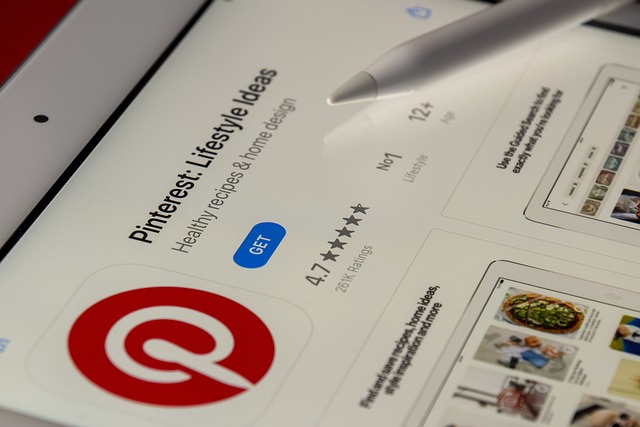Thousands of new businesses pop up every year, and being a unicorn is the dream of millions of entrepreneurs. What does a unicorn mean in business? A Unicorn is a privately-held startup company with a valuation of $1 billion or more. They are called unicorns as being so rare launches them into almost a mythical category. The term was introduced in 2013 by Alien Lee, the venture capital investor.
Characteristics of Unicorn Companies
As of January 2023, there are 1 205 unicorn companies worldwide with a total cumulative valuation of ~$3,858 billion (according to data provided by CBInsight). Slightly more than 20% are fintech unicorns. A startup has an estimated 00006% chance of becoming a billion-dollar company, whereas the overall failure rate after five years is 50%, and after ten years is 70%.
The question is: How the current unicorn companies have been successful and whether there are any common traits among them? I will try to answer it in the following article.

A quick review of the Unicorn Companies
According to Alien Lee, the first unicorn companies arose in the 1990s. Google was then a hectocorn (unicorn valued at over $100 billion) among them. In 2013 there were 39 unicorns. Currently, in 2023, there are two hectocorns: ByteDance - TikTok owner - ($140 billion) and SpaceX ($127 billion), and one pretending to be: Shein ($100 billion). Moreover, there are 43 decacorns nowadays (unicorns valued at over $10 billion), among which the most famous are: Stripe, Canva, Checkout.com, Revolut, Epic Games, Miro, Grammarly, and Blockchain.com.
It is worth noting that as much as 25,5% of decacorns come from the FinTech industry. Also, to give you an overview, the list of some famous former unicorns includes Meta (Facebook), Uber, Airbnb, Xiaomi, Alibaba, Pinterest, Dropbox, Spotify, Skype, Twitter, Gilab, Groupon, Zalando, Atlassian, WhatsApp, Twilio, LinkedIn, Shopify, Zoom or Skyscanner.

What are a billion startup growth strategies and common traits?
Venture capitalists expect fast-growth strategies from startups. It allows them to invest a large amount of money in each funding round and await the largest achievable market share in the short term. This approach has another tremendous advantage: it prevents major rivals from entering the market.

There are other common traits of unicorns, among which can distinguish:
- They have set a vision of growth. Growth is a part of their DNA. They set short and long-term goals regarding revenues and the development direction and also hire experienced, brave, and creative people. Unicorn businesses are future-oriented and constantly seeking new ways to innovate. They grow fast and attract big-time investors. However, it is crucial to underline that investors do not fund companies simply for their unique ideas but also for the performance of their teams. They should actively track the financial viability of their products and be able to forecast growth patterns for at least 6-18 months. It provides investors with important information about how the company approaches its goals.
- A second example is that they have unique problem-solving abilities and can create new solutions to address existing market or customer problems. Disruptive innovation is their hallmark. They often redefine what is known. It is what Airbnb has done with booking a hotel room, Uber with a taxi service, and Revolut with finance management. Unicorns usually break the rules of the market and are the first to enter the market with a new idea. Moreover, they can maintain the first-mover advantage by continuously expanding and developing their service or product.
- Unicorn startups run their business model on tech. It enhances business growth and scaling. Moreover, there is a recent trend of using AI by unicorns. It is thoroughly, as Adam Neumann, chief executive officer of unicorn WeWork, said: Technology is an equalizer, allowing small companies to run more efficiently with fewer resources.
- Another common trend across the unicorns is a customer-center model. 62% of the unicorns are B2C companies. They create products and services at affordable prices and are easy to use.
- Strong executive leadership is essential for unicorn businesses, as it can determine their success or break them. The sample here is EverNote, whose problems began when it lost four of its top executives.

The Unicorn Valuation Challenge: Insights and Best Practices
All unicorns are private startups valued based on their expected development and growth potential. As many unicorns do not generate profits initially, financial performance is not a key factor for the valuation. Unicorn startups should be in power to convince venture capital firms that their vision has potential and that they can grow the business and make it profitable. Their valuation arises from the investors and venture capitalists participating in the financing rounds.
However, the frequent problem with unicorn valuation is that there is often no point of reference because they rarely have competitors and are pioneers in the industry. They often focus on totally new markets or areas, new technologies, or they represent a new business model. Therefore, the valuations are very rough estimates.
A common way to raise the valuation of unicorn businesses is to buy them out by larger companies, as happened, for example, when Facebook bought Instagram.
From regular FinTech startup to a unicorn - a short case study
FinTech is the booming industry in 2023 and due to attracting investors. The explosion of FinTech companies and startups in recent years is not surprising. As mentioned above, 20% of unicorns arose from the financial industry. As of January 2023, the most valuable European startup is a London-based unicorn valued at $40 billion - Checkout.com.

Checkouts.com is a FinTech startup focused on online payment transactions and payment gateway. It specializes in developing technology for businesses to run and manage all their online transactions in one platform. Checkouts.com's history starts in 2007 in Singapore, when Guillaume Pousaz, a Swiss national, started his company Opus Payments - a platform enabling businesses in Hong Kong to process payments from worldwide buyers. However, the business idea was born even earlier and is associated with a gripping story. Pousaz dropped out of the university in 2005, then, in 2006, he moved to California to surf. When he ran out of cash, he decided to get a job at International Payment Consultants, a payments processing firm. It is where he got the inspiration to start his business. During an interview in 2020 for Sunday Times, he said: I did not choose payments – payments chose me.
The turning point for Opus Payments was the deal with Dealextreme - a Chinese tech gadgets trading website. It was 2011, and this deal made the company profitable. One year later, Opus Payments was renamed Checkout.com and registered in the U.K. Pousaz saw great potential in the emerging online payments market in China and sought partnerships with WeChat and Alipay.
Between 2013 and 2017, the company became a principal member of Mastercard, Visa, Diner, Discover, Union Pay, and JCB. 2019 was another fascinating year for Checkout.com as they received a $230 million Series A funding round led by DST Glob Insight Partners. It increased its valuation to $15 billion. In 2020, Checkout.com acquired FinTech startups ProcessOut and Pin Payments allowing it to enter the markets of New Zealand and Australia. One year ago, in January 2022, the company announced a $1 billion funding round.
Currently, the company is the fifth highest-valued private startup in the world, having a client portfolio that includes: Sony, Shein, GettyImages, and GE HealthCare. For today, one of the three most important directions of company development is expanding into web3 (a new generation of internet services run on blockchain technologies, allowing the creation of a more secure and decentralized web).
There is a visible race between online payment companies to power blockchain technologies. Checkout.com is already deeply engaged in the cryptocurrency world - the company powers some of the biggest exchanges in the world. According to the company, this represents almost 80% of the global crypto trading volume.

Let's look at which of the traits for $1 billion startups described above we can see in the case of Checkout.com. An innovative idea and solution based on modern technology are visible. They also cannot be denied the continuous development of their product and boldly entering completely new areas such as cryptocurrency markets.
The clear vision of growth also shines through in their activities, and their very high position on the list of the most valuable startups confirms this. Achieving such a position without strong executive leadership would also not be possible, and employing experienced specialists successful in the other companies' development (Skype, Twilio, Novi) is a visible trend in the company.
The only feature that Checkout.com does not represent directly is the B2C model. Nevertheless, it is worth emphasizing that the solutions it provides to businesses are, in the end, focused on the customers of these enterprises.
Conclusion
Probably, one of the most important lessons we can learn from unicorn startups is that there is no real secret to success. Although there are several common characteristics unicorns seem to share, there is no single known path they can go through to become a unicorn business. On the other hand, reaching unicorn status does not always mean success. Some unicorns are struggling to maintain valuation and others experienced down exist.
Small startup businesses should find the right mix of innovation, product advantage, market demand, and company business model and appear at the right moment to be successful. But who knows, maybe your business will be the next one to achieve that magical unicorn status.
For more interesting articles, visit our Railwaymen blog. Also visit our Case Studies tab, where we cover stories of our past projects. Who knows, you may find potential Unicorn Companies cases among them.






